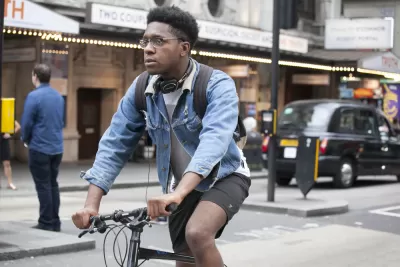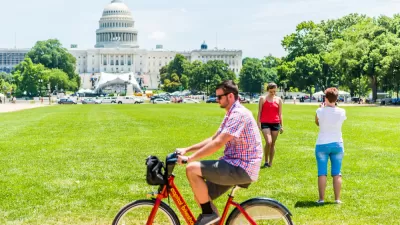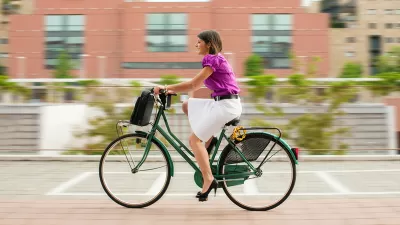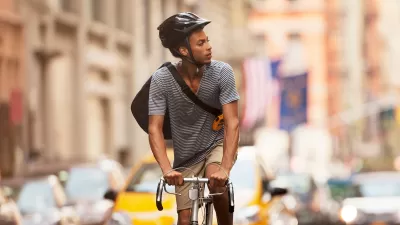While bike commuting remains below one percent as a regular transportation mode in the United States, the popularity of biking got a boost during the pandemic.

A report from The Bike Adviser outlines the state of bike commuting in the United States. “More and more Americans nowadays seem to value the exercise that they get from using the two-wheeled transport. From quicker and cheaper way of getting to and from work to more walkable neighborhoods and healthier people, biking is the source of many good things,” the report states.
Key findings include:
- “From 2000 to 2019, the number of commuters who bike to work increased from 488,000 to 786,000 or an increase of 61%,” although that number peaked at 904,463 in 2014 and has declined since then. “Oregon, Montana, Colorado, Wyoming and Washington ranked in the top 5 of all states with the largest percentage share of bike commuters.”
- “Of 786,000 people who commute by bike, 71% are men and about 29% are women.”
- According to the report, “Boasting excellent bike lanes and comprehensive bike safety laws, states like Oregon, Montana, Colorado, Wyoming and Washington have consistently ranked in the top 5 of all states for avid cyclists and exemplary infrastructure, advocacy, education and bike law enforcement.”
Despite its recent renaissance, bicycling remains the primary transportation mode for a small percentage of commuters. But as the report points out, the United States has a massive population. “At 0.6%, that’s a lot more bike commuters on our roads compared to many other countries in the world.” And “As cities around the US are wising up to the benefits of commuting by bike, miles of bike lanes are being added, making the streets safer and cracking down on dangerous car drivers threatening bike commuters.”
FULL STORY: The State of Bike Commuting in the U.S.

Maui's Vacation Rental Debate Turns Ugly
Verbal attacks, misinformation campaigns and fistfights plague a high-stakes debate to convert thousands of vacation rentals into long-term housing.

Planetizen Federal Action Tracker
A weekly monitor of how Trump’s orders and actions are impacting planners and planning in America.

In Urban Planning, AI Prompting Could be the New Design Thinking
Creativity has long been key to great urban design. What if we see AI as our new creative partner?

Chicago’s Ghost Rails
Just beneath the surface of the modern city lie the remnants of its expansive early 20th-century streetcar system.

Baker Creek Pavilion: Blending Nature and Architecture in Knoxville
Knoxville’s urban wilderness planning initiative unveils the "Baker Creek Pavilion" to increase the city's access to green spaces.

Pedestrian Deaths Drop, Remain Twice as High as in 2009
Fatalities declined by 4 percent in 2024, but the U.S. is still nowhere close to ‘Vision Zero.’
Urban Design for Planners 1: Software Tools
This six-course series explores essential urban design concepts using open source software and equips planners with the tools they need to participate fully in the urban design process.
Planning for Universal Design
Learn the tools for implementing Universal Design in planning regulations.
planning NEXT
Appalachian Highlands Housing Partners
Mpact (founded as Rail~Volution)
City of Camden Redevelopment Agency
City of Astoria
City of Portland
City of Laramie





























